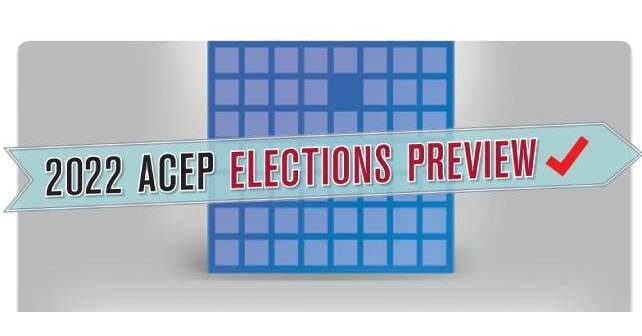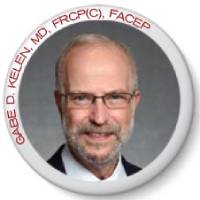
When we do this, genuinely promoting our members, creating opportunities to highlight their insights, experiences, and talents, we create increasingly accessible resources available through ACEP. These solutions can be internet-accessible—creating guides, educational forums, and point-of-care apps. We can create stronger peer networks, virtual and in-person events. As ACEP becomes more tangible in helping emergency physicians in the workplace, in personal development, and in wellness to name just few key areas of importance, this tangibility advances member engagement and loyalty—leading to a bigger,stronger, more creative ACEP. This isn’t a “zero sum” equation whereby one emergency physician’s advance must come at another emergency physician’s loss. Our unity on career enhancements in emergency medicine serves to strengthen us all.
Explore This Issue
ACEP Now: Vol 41 – No 08 – August 2022 Gabor D. Kelen, MD, FRCP(C), FACEP
Gabor D. Kelen, MD, FRCP(C), FACEP
Current Professional Positions: chair, department of emergency medicine, Johns Hopkins University, Baltimore; physician-in-chief, emergency medicine, Johns Hopkins Medicine; director, Johns Hopkins Office of Critical Event Preparedness and Response; principal staff, Applied Physics Laboratory, Johns Hopkins University; professor of emergency medicine, anesthesiology, and critical care medicine, Johns Hopkins University School of Medicine
Internships and Residency: internship, University of Toronto, St. Michael’s Hospital; residency, University of Toronto, St. Michael’s Hospital; emergency medicine residency, Johns Hopkins Hospital
Medical Degree: MD, University of Toronto (1979)
Response
The newly developed ACEP strategic plan has five pillars and 23 imperatives. Each of these imperatives is of top-line importance. All of them need to be addressed.
Inherent in the essentials of the strategic plan is the underlying drive to proactively address and promote the dignity of the emergency physician in all deliberations, and the nobility inherent in emergency practice. Our many threats—feeling like cogs in a system, CMG and sense of autonomy loss, encroachment of scope of practice, fair remuneration, fair treatment, due process, and violence in the workplace, diminish our sense of self and our specialty. Upholding and advancing the dignity of the emergency physician and respect for our practice must be the unwavering compelling force in addressing the key priorities and all activities of the College.
 Jeffrey F. Linzer Sr., MD, FACEP
Jeffrey F. Linzer Sr., MD, FACEP
Current Professional Positions: professor of pediatrics and emergency medicine, Emory University School of Medicine; medical director for business affairs and compliance and EMS/pre-hospital care coordinator, Division of Pediatric Emergency Medicine, Emory + Children’s Pediatric Institute, Children’s Healthcare of Atlanta
Internships and Residency: pediatric residency, University of California, Irvine; allergy-clinical immunology fellowship, Children’s Hospital Los Angeles; pediatric emergency and transport medicine fellowship, Children’s Hospital Los Angeles





No Responses to “2022 ACEP Elections Preview: Meet the President-Elect and Board Candidates”